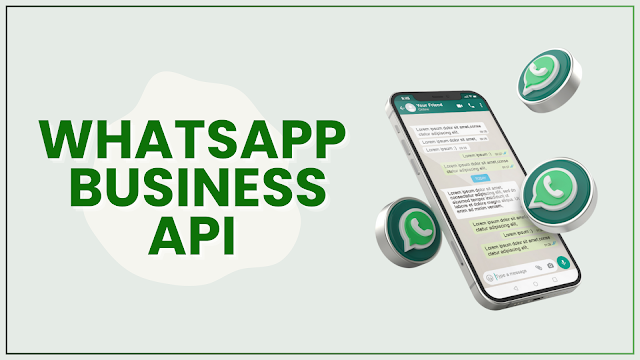7 Advantages of WhatsApp Business API for Small Businesses
In today’s fast-paced digital landscape, communication is key to business success. Small businesses, in particular, are constantly seeking innovative ways to connect with their customers efficiently. One such groundbreaking solution is the WhatsApp Business API, providing small businesses with a robust platform for effective communication. Let’s delve into the seven advantages that make WhatsApp Business API a game-changer for small businesses.
1. Enhanced Customer Engagement:
WhatsApp Business API opens up a direct line of communication between businesses and customers. Through the platform, small businesses can send personalized messages, updates, and promotions directly to their customers’ WhatsApp accounts. This direct engagement fosters a sense of connection, allowing businesses to stay top-of-mind and build lasting relationships.
2. Efficient Customer Support:
Providing timely and efficient customer support is crucial for small businesses. WhatsApp Business API enables businesses to offer real-time support through chat. This instant accessibility allows businesses to address customer queries promptly, improving customer satisfaction and loyalty. The API also supports automated responses, streamlining the support process and saving valuable time.
3. Secure and Private Communication:
Security and privacy are paramount in business communication. WhatsApp Business API employs end-to-end encryption, ensuring that all messages exchanged between businesses and customers remain private and secure. This feature not only builds trust but also aligns with data protection regulations, a crucial aspect for businesses of all sizes.
4. Global Reach with Local Appeal:
For small businesses looking to expand their reach, WhatsApp Business API offers a global platform with a local touch. Businesses can communicate with customers worldwide while maintaining a personalized approach. This global reach helps small businesses tap into new markets, attracting diverse customer bases without compromising on the personalization that makes their brand unique.
5. Optimized Marketing Strategies:
WhatsApp Business API facilitates targeted marketing campaigns. Small businesses can use the platform to send targeted messages, offers, and updates to specific customer segments. This level of precision in marketing helps businesses tailor their messages according to customer preferences, increasing the effectiveness of their marketing efforts and driving higher conversion rates.
6. Seamless Integration with CRM Systems:
Integrating WhatsApp Business API with Customer Relationship Management (CRM) systems is a game-changer for small businesses. This integration ensures that customer interactions on WhatsApp are seamlessly recorded and tracked within the CRM. This comprehensive view of customer interactions allows businesses to understand customer behavior better, personalize communications, and make informed business decisions.
7. Cost-Effective Communication:
For small businesses operating on tight budgets, cost-effective communication solutions are crucial. WhatsApp Business API offers a cost-effective alternative to traditional communication channels. With its efficiency in handling customer queries, streamlined support, and targeted marketing capabilities, businesses can optimize their resources and achieve more with less.
In conclusion, the WhatsApp Business API is not just a communication tool; it’s a strategic asset for small businesses aiming to thrive in the digital age. From enhanced customer engagement to cost-effective communication, the advantages are clear. By leveraging this powerful platform, small businesses can build strong customer relationships, expand their reach, and stay competitive in an ever-evolving business landscape. Embracing the WhatsApp Business API is not just a step forward; it’s a leap towards sustainable growth and success for small businesses.




Comments
Post a Comment